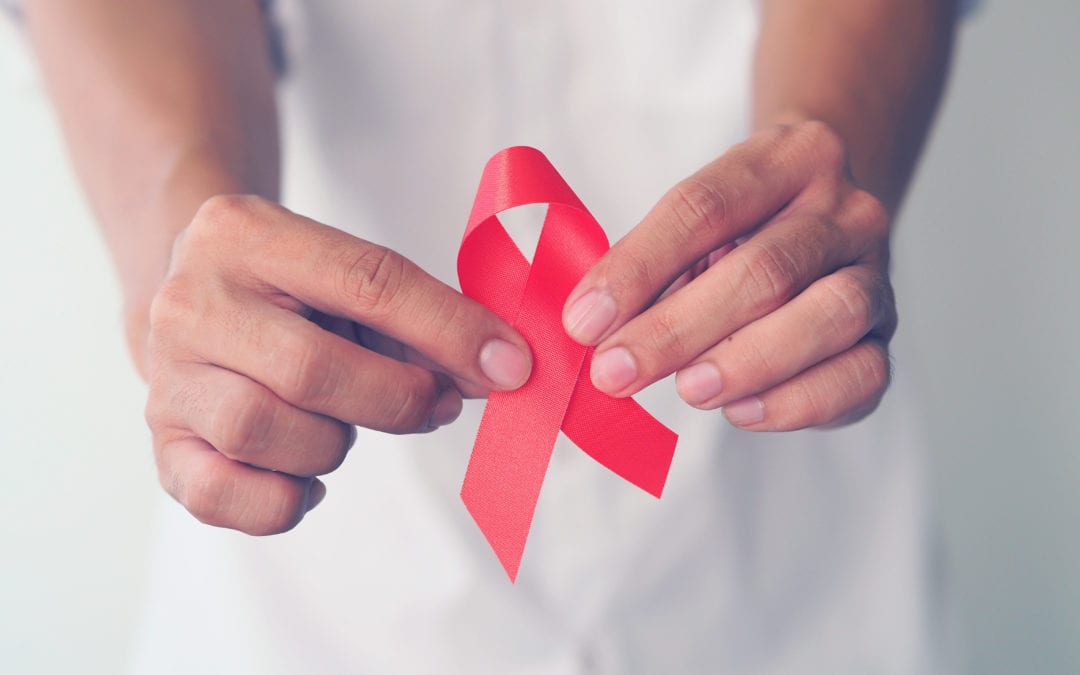How Does HIV Affect the Mouth?
How Does HIV Affect the Mouth?

Currently, approximately 1.2 million Americans have HIV and around 13% are unaware they have it. In more recent years the U.S. has made strides in decreasing annual infections which have reduced by more than two-thirds since the height of the epidemic in the mid-1980s. Nonetheless, early detection of HIV is detrimental in preventing progression and transmission.
While it is understood that human immunodeficiency virus (HIV) attacks the immune system, the virus can severely impact every part of the body and increase the risk for developing oral health problems. HIV is contracted primarily through sexual contact or through the use of a contaminated needle. The virus attacks CD4 cells, which are a specific type of T cell. T cells are crucial to fighting infection.
Symptoms are not enough to diagnose infection with HIV. Individuals who have come into contact with HIV should get tested. There is currently no cure for HIV infection, but there are medications that help to control it. However, Moderna, the company that developed one of the COVID-19 vaccines, has recently launched an experimental HIV vaccine trial that uses its mRNA technology.
The National Institute of Dental and Craniofacial Research reported that “people living with HIV are at special risk for oral health problems,” and that 30–80% of HIV-positive individuals experience oral complications. The mouth may be the first area of the body to be affected, and if not treated properly some of the oral problems could cause discomfort and prevent the patient from swallowing or chewing. Certain complications occur at certain stages of the virus, which include:
- Stage 1: Acute HIV infection
- Stage 2: Chronic HIV infection
- Stage 3: AIDS
Individuals may experience the following signs or symptoms:
- Dry mouth (xerostomia)
- Thrush (oral candidiasis)
- Gum disease (acute ulcerative gingivitis/periodontitis)
- Canker sores (aphthous ulcers)
- Warts caused by human papilloma virus (HPV)
- White lesions on sides of the tongue (oral hairy leukoplakia)
- Mouth ulcers
- Oral herpes
Mouth ulcers often appear during the acute stage and can be an early sign of HIV infection. The most common symptom that individuals experience is dry mouth, which increases the risk of infections and tooth decay. HIV-positive patients are also more likely to develop oral herpes. Unlike thrush and oral hairy leukoplakia, herpes is contagious and currently there is no cure for herpes infection.
Fortunately, dental and mouth problems related to HIV are manageable and treatable. Doctors can prescribe antifungal lozenges, pills, creams, and for warts that grow inside the mouth, doctors will suggest cryosurgery, a freezing treatment, as needed.
With advancements in antiretroviral therapy (ART), HIV-related oral manifestations have been able to improve and change due to the employment of ART. Antiretroviral medications (ARVs) are prescribed as part of an HIV regimen that are tailored to fit the patient’s specific needs. The guidelines developed for effective drug treatment incorporate a three-drug regimen as the standard for long-term effectiveness against HIV.
The College of Dentistry offers services in comprehensive, urgent, and specialty care. If you’d like to schedule an appointment, please visit https://dentistry.uic.edu/patients/request-an-appointment/.
References:
https://www.medicalnewstoday.com/articles/hiv-tongue
https://www.mouthhealthy.org/en/az-topics/h/hiv-aids-and-dental-health
https://uofi.app.box.com/v/oralcareJan2022
https://www.nidcr.nih.gov/health-info/hiv-aids
https://www.hiv.gov/hiv-basics/overview/data-and-trends/statistics